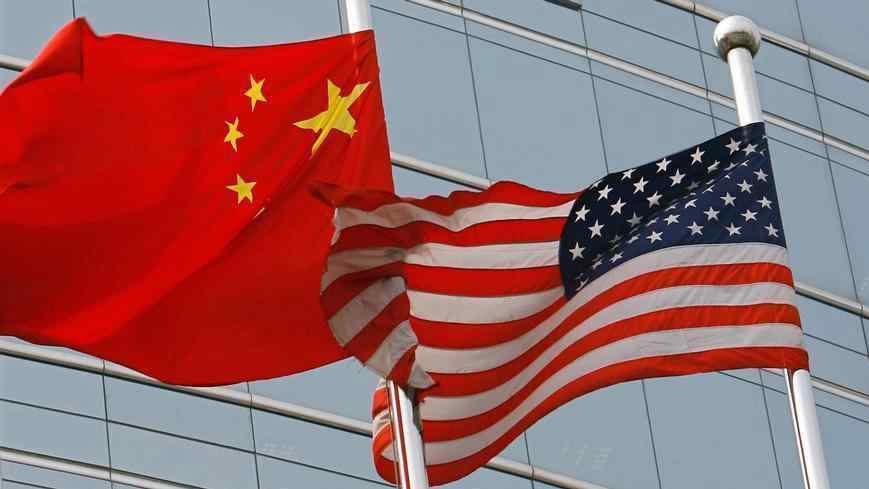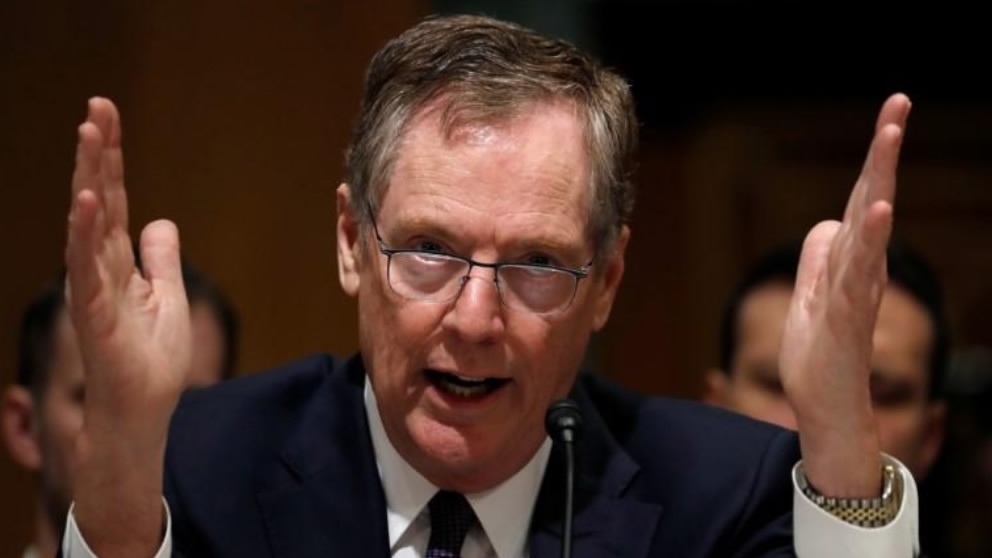
Business
12:25, 02-May-2018
US trade members downplay expectations ahead of China trip
CGTN

The Trump administration's top trade negotiators sought to downplay the expectations for a quick breakthrough on trade frictions between the two countries ahead of their visit to China for trade talks starting from Thursday.
US Trade Representative, Robert Lighthizer, avoided uncompromising talk and tariff threats. He said he was not looking to negotiate changes to China’s economic system, but would seek to expose it to more foreign competition on Tuesday during an event at the US Chamber of Commerce in Washington.

US Trade Representative, Robert Lighthizer in Washington, March 22, 2018. /Reuters Photo
US Trade Representative, Robert Lighthizer in Washington, March 22, 2018. /Reuters Photo
“There’s a very different system over there, and it’s a system that in all honesty has probably worked pretty well for the Chinese,” Lighthizer said, “But I have to be in a position where the United States can deal with it, where the United States isn’t the victim of it, and that’s where our role is.”
He viewed the talks with top Chinese officials on Thursday and Friday as the start of a long learning process for Washington and Beijing to better manage their trade differences.
He said the two sides could spend the next year developing how to deal with each other over a period of time. "We’re in the early stages of that,” he added.
During an interview with CNBC on Tuesday, commerce secretary Wilbur Ross said he had “some hope” the two sides could ease tensions over trade.
Both Lighthizer and Ross are included in the trade delegation to China on Thursday, which also includes the US Treasury Secretary Steven Mnuchin, White House trade and manufacturing adviser Peter Navarro and new White House economic adviser Larry Kudlow.
Ross said earlier on Tuesday that Trump was prepared to levy tariffs on China if the delegation did not reach a negotiated settlement to reduce trade imbalances.
But because of the size and strength of the Chinese economy, experts say Beijing’s negotiators may feel less pressure to meet US demands.
Trade tensions have risen between the world’s two largest economies since US President Donald Trump vowed to slap tariffs on some 150 billion dollars in Chinese imports. China countered by vowing to impose tariffs on US goods.
When asked how long the White House might delay tariffs on Chinese imports, Lighthizer said: “We’ll see. Our list of things that are troubling is very long.”
Washington wants a 100-billion-US-dollar cut in the trade deficit with China, which the US Commerce Department claimed had reached 375.2 billion US dollars in 2017.
“This won’t be, suddenly in Beijing, a breathtaking release (that) everything is solved,” Ross said.
(Sean Callebs also contributed to the story.)

SITEMAP
Copyright © 2018 CGTN. Beijing ICP prepared NO.16065310-3
Copyright © 2018 CGTN. Beijing ICP prepared NO.16065310-3